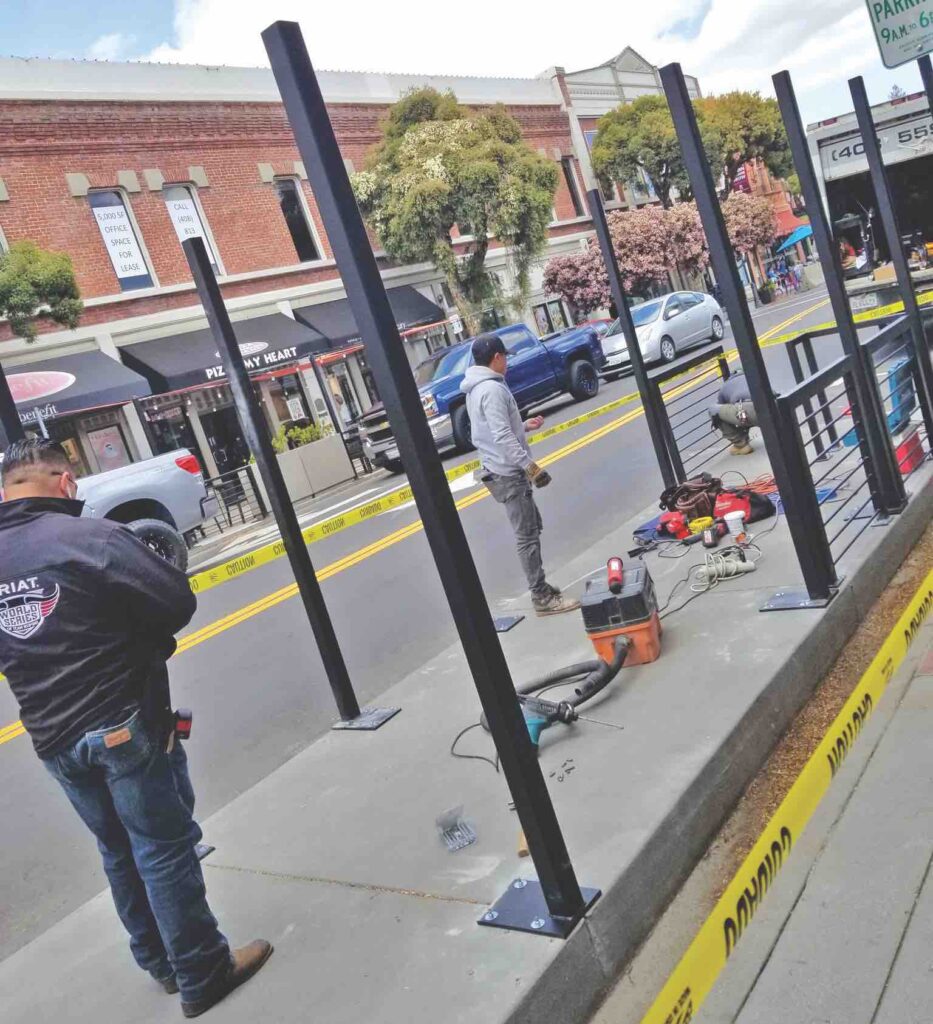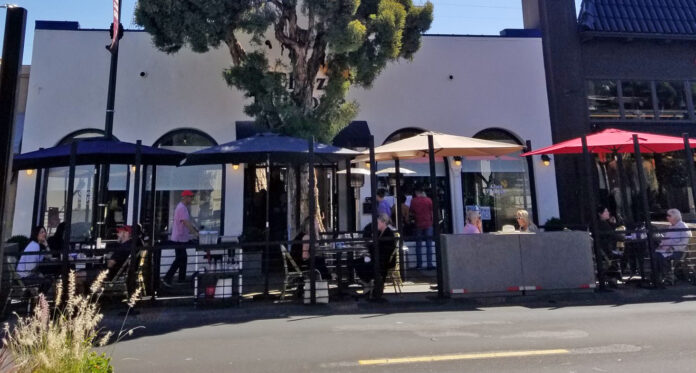The Campbell City Council met on Sept. 20 to discuss a proposed semi-permanent parklet system that would replace the temporary system currently in place, but decided to hold off on taking action on the proposal until at least next month.
Parklets have been a popular solution to restaurants and their patrons during the Covid-19 pandemic, including in Los Gatos. Restaurants could remain open while providing diners with space to socially distance in an open-air setting.
The semi-permanent parklets could cost between $75,000-$90,000, depending on what options the restaurants might want to add.
That’s a price that has left many restaurateurs with sticker shock, with many saying that they might not want to consider participating without significant subsidies from either the city or their landlords.
Randy Musterer of Sushi Confidential said that the City of Campbell reached out to restaurants earlier this year about building semi-permanent parklets to replace the temporary structures that had been built at the beginning of the pandemic, but none of the business owners were aware of the price point until recently.
“A lot of these restaurants that have been interested may not be able to afford it,” Musterer said. “They may have depleted a lot of their savings, or they only have a year or two left on their lease. A lot of these landlords aren’t helping subsidize or pay for it. So there may not be real financial reasons to move forward.”
Under the new plan, parklets can take two parking stalls on the street, with the entire structure contained within those parking spaces.
The designs that were presented by Sidell Pakravan Architects, the firm hired by the city, come with varying degrees of coverage—some have roofs, some have picket fence-like enclosures—and are more secure than most of the temporary structures on Campbell Avenue, which could mitigate injuries in the event of accidents.

Safety is a major concern, especially when people are placed so close to traffic.
Leslie Parks, the economic development manager for the city, gave an example in the meeting that an SUV had backed into a wood-framed parklet in an unnamed city and the driver had been unaware of the collision.
“A vehicle can be very close when you have a parklet in a parking space. The intent of the design is to provide as much protection as possible for the diners,” Parks said.
Those protective materials—concrete, steel railings and redwood—carry most of the cost for the proposed parklet designs. Cheaper materials, like plywood, were not considered to be viable to the designers because it breaks down when it spends a lot of time in the elements.
Other jurisdictions such as Los Gatos and Redwood City have already implemented semi-permanent parklets in their downtown areas.
Alex Hult, the founder of Flights restaurant which has a location in downtown Campbell and previously in Los Gatos, said that Campbell has been “smart” to hold off and see what neighboring cities are doing so that the program is done right.
But part of the problem is the high ticket price.
According to Musterer and Hult, restaurateurs who might want to participate in the program may be leery to join because they may have only a few years left on their lease and they don’t want to invest in a parklet if they might not remain in the same location long-term.
Business owners want the city or their landlords to cover some of the costs to build these structures.
Hult said that Los Gatos used federal funding to help subsidize $40,000 or 75% of construction costs for its parklet program, but the City of Campbell is considering reducing the parklet application fee from $1,500 to $500, removing the deposit charge and providing up to $3,000 in parklet customization consultation with Sidell Pakravan Architects. But that still leaves business owners paying for the bulk of construction costs.
Part of the reason is that the city is required to pay prevailing wage to contractors if they disperse grants from federal funds, which could drive costs of construction up 30-35 percent, according to Parks.
In an effort to find solutions that will benefit business owners and the city, the City Council delayed moving further on the plan until it can reconvene on the matter on Oct. 4.
Copyright © 2022 Bay City News, Inc.










